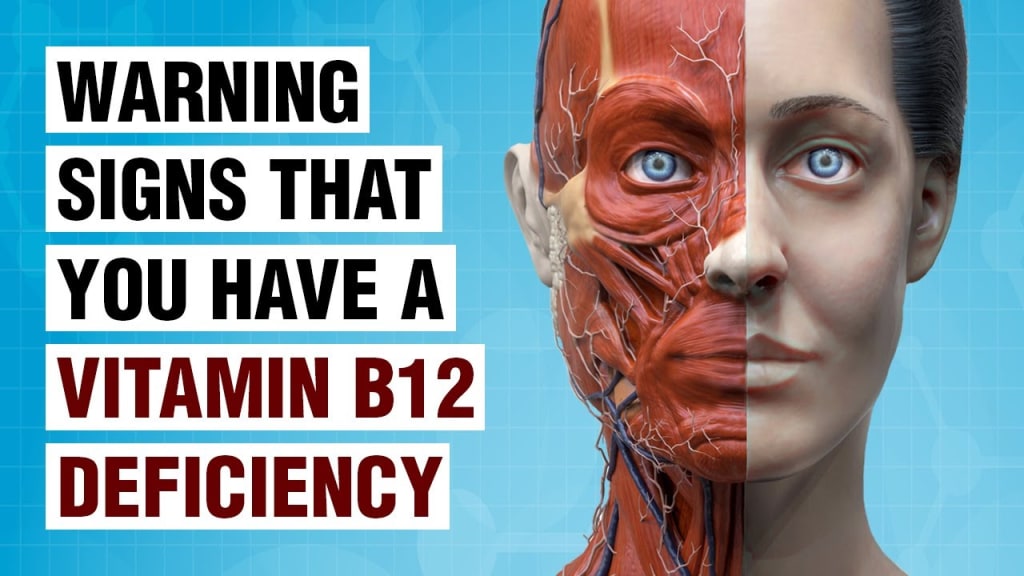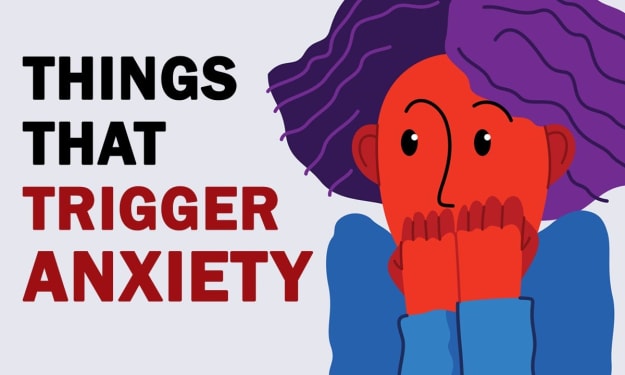10 Symptoms of Vitamin B12 Deficiency You Should Never Ignore
Do you know how much vitamin B12 you consume every day? Do you even know if you're getting enough? B12 is an essential nutrient that our bodies need to be healthy - it's responsible for making red blood cells, nerves, and DNA, in addition to carrying out other essential functions. The thing is, we can't produce B12 on our own. Like most other vitamins, we need to consume it. On average, a healthy adult must ingest at least 2.4 micrograms of B12 each day.

Vitamin B12 Deficiency Symptoms You Should Never Ignore
Do you know how much vitamin B12 you consume every day? Do you even know if you're getting enough? B12 is an essential nutrient that our bodies need to be healthy - it's responsible for making red blood cells, nerves, and DNA, in addition to carrying out other essential functions. The thing is, we can't produce B12 on our own. Like most other vitamins, we need to consume it. On average, a healthy adult must ingest at least 2.4 micrograms of B12 each day.
However, some people don't consume enough B12 rich food or supplements. And others are unable to absorb enough B12, no matter how much they take in. The result is that many people develop B12 deficiencies - and you might be one of them. Plus, as you grow older, you'll become progressively susceptible to vitamin deficiencies. Experts believe that 20% of people over 50 experience low levels of vitamin B12. But most people overlook the signs, because the symptoms are varied and common among other conditions as well.
If you want to catch and remedy a potential vitamin B12 deficiency, be sure not to ignore the following signs: Weakness And Fatigue Among the most common symptoms of a vitamin B12 deficiency is feeling tired and weak. Vitamin B12 is necessary for the production of red blood cells, and not getting enough of it hinders the transportation of oxygen throughout the body. When your oxygen transportation system is weakened in this way, it’s most often caused by the autoimmune condition called Pernicious Anemia. This form of anemia occurs when the body fails to produce enough Intrinsic Factor - a glycoprotein required by the intestines to absorb vitamin B12.
Moodiness Vitamin B12 is needed for essential functions in the body and the mind. It is necessary for your mental health, and vitamin B12 deficiencies are linked to mood disorders, such as anxiety and depression. This is because B12 is needed to produce neurotransmitters like serotonin and dopamine, which are responsible for mood regulation and proper brain function. When levels of these chemicals are low, depression is likely. Vitamin B12 deficiencies are also proven to reduce oxygen in the brain. When the neurons don't have enough oxygen, they can't transmit signals to the rest of the body - and this can result in mood changes.
Dizziness and Shortness of Breath Frequent vertigo or dizziness are also symptoms of a vitamin B12 deficiency. These signs occur most often when suddenly changing positions - like standing up after sitting or lying down - or immediately after strenuous physical activity. Again, this happens because the body is short of red blood cells. And without adequate oxygen, the cells in your body cannot perform their functions effectively. Pins, Needles, and Numbness Nerve damage is the most serious side effect of B12 deficiencies.
Over time, a lack of B12 causes reduced production of Myelin, which makes up the protective sheath around the nerves. With exposed or weak nerves, the body may experience Paresthesia - which is a pins and needles sensation throughout the arms, hands, legs, or feet. Numbness or limbs that fall asleep is also common. These symptoms of vitamin B12 deficiency typically occur in conjunction with Anemia. Mobility Issues If a vitamin B12 deficiency goes untreated, the nerves may deteriorate to a point where your mobility is challenged.
Your ability to move, or your walking style may change, and you may find that your balance and coordination are off. This symptom is most common in the elderly, and it raises concerns about accidents such as falling. Although people over the age of 60 are more likely to experience a B12 deficiency, young people with a severe deficiency may also show these symptoms. Paleness or Jaundice People with a vitamin B12 deficiency often appear pale or even slightly yellow. Jaundice is a condition that affects the skin and eyes, producing this yellow tinge.
Megaloblastic Anemia causes the red blood cells in the bone marrow to become enlarged and fragile. As a result, they can't pass out of the marrow, and into circulation. So, this entire supply of red blood cells becomes useless to the body. The subsequent shortage causes paleness. And because these cells are so fragile, they often break down and create an excess of Bilirubin - the yellow chemical compound responsible for jaundice. Blurry Vision If you have a B12 deficiency, you might also experience blurry or distorted vision. This symptom is more common when the deficiency progresses into nerve damage.
Once it affects the optic nerve - which is responsible for connecting the eyes to the brain - signals cannot travel effectively, and disturbed vision occurs. Although some overlook vision deterioration as a part of life, it may be the result of a preventable vitamin B12 deficiency. Skin, Hair, And Nail Problems Vitamin B12 is also essential for healthy skin, hair, and nails - and if your B12 intake is low, you might notice their decline. One possible symptom is Vitiligo - a pigmentation disorder that causes white patches on the skin. Other skin issues include acne, dermatitis, hyperpigmentation, and skin lesions.
Low levels of B12 can also cause hair loss, prematurely gray hair, and brown-gray nails. Swollen, Red Tongue Glossitis is an early sign of a vitamin B12 deficiency, and it causes inflammation of the tongue. You may notice lesions, redness, swelling, or pain. Once your tongue changes its shape and color, you may struggle to speak and eat. In addition to these unpleasant symptoms, a vitamin B12 deficiency can also cause other oral issues - such as mouth ulcers, pins and needles in the tongue, and a burning or itching sensation around the mouth.
Digestive Issues and a Decreased Appetite Low levels of B12 can also be linked to problems in the digestive tract. Symptoms include nausea, vomiting, heartburn, abdominal bloating, gas, constipation, and diarrhea. With an upset stomach or recurring diarrhea, you might feel weak and lose your appetite. In the long run, this could lead to unhealthy weight loss. When you talk to an experienced physician, they may be able to notice symptoms of a vitamin B12 deficiency straightaway - however, you'll need a blood test to confirm and accurately diagnose the condition.
Talking to your doctor about your B12 levels is a good idea, if you experience any of the symptoms mentioned. And it's an even better idea if your lifestyle makes you prone to vitamin deficiencies - for example, if you eat a vegan or vegetarian diet, underwent weight-loss surgery, or live with a condition that interferes with nutrient absorption - like colitis, Crohn's, IBS, or Celiac disease. Early detection and treatment are essential when it comes to vitamin B12 deficiencies. Untreated, they can have severe consequences - like neurological problems, blood diseases, and physical impairments. Have you ever had a vitamin B12 deficiency? How did you find out, and what steps did you take to remedy your condition? Tell us in the comments below!






Comments
There are no comments for this story
Be the first to respond and start the conversation.